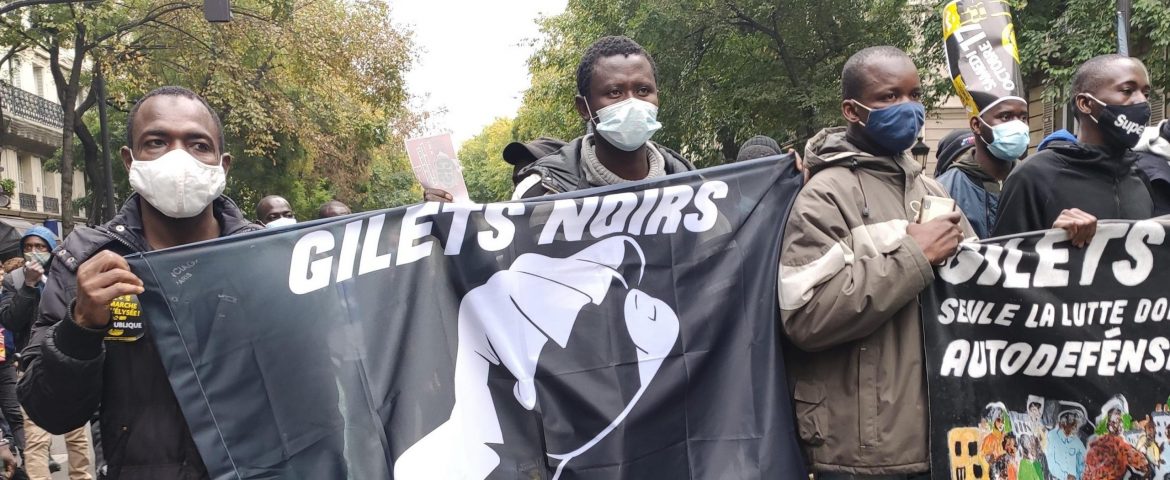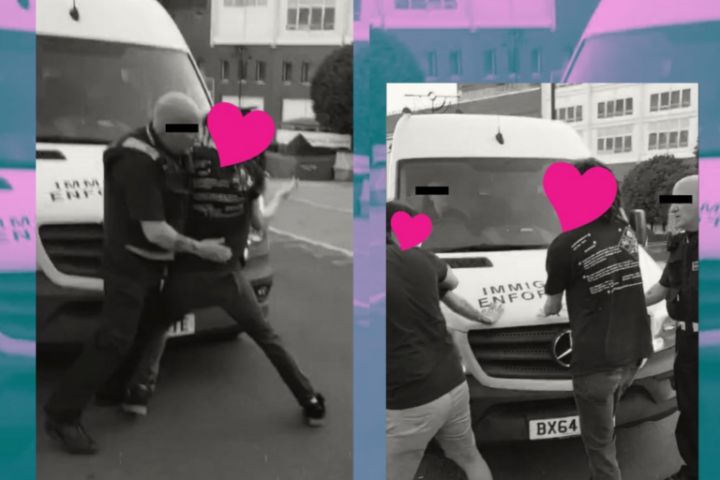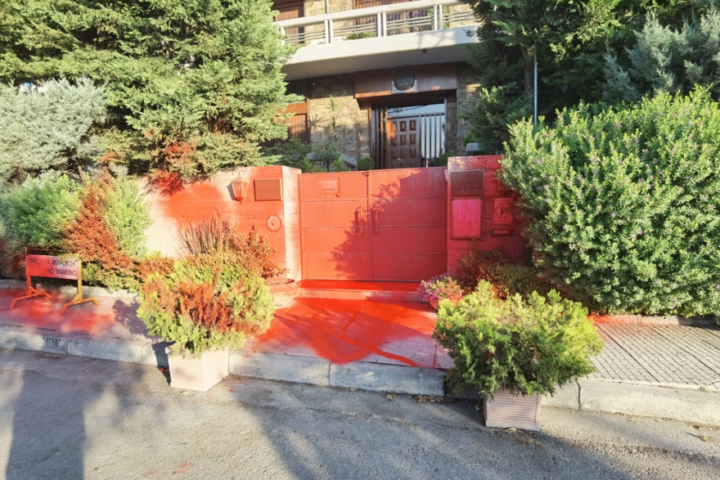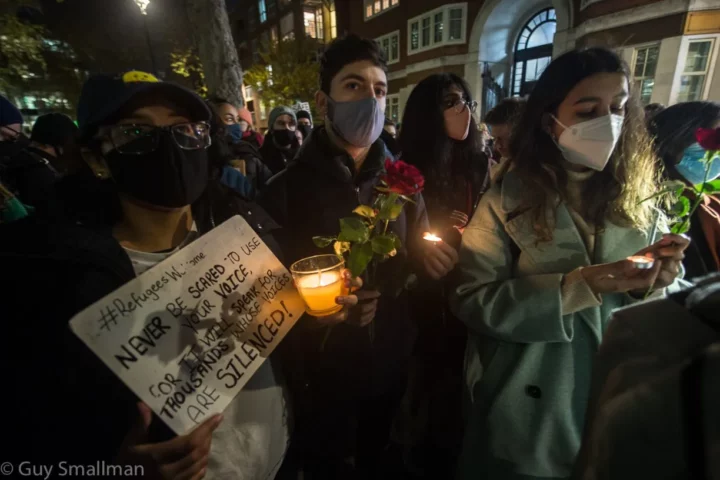On Saturday 17 October, thousands of people demonstrated in Paris to demand the regularisation of all “undocumented migrants”, the closure of administrative detention centres and dignified housing for all.
This march is part of the process of the “Solidarity march” of which it is the third act. The first act took place on 30 May this year when thousands of “undocumented migrants” and supporters collectively went over the ban on demonstrations in Paris and several other cities. During the health crisis, they denounced their total abandonment by the authorities and the overcrowded conditions in migrant workers’ homes and detention centres, which are conducive to the spread of the virus. Once again, they had also denounced the harsh economic exploitation of “undocumented migrants”. Many of them were among the front line workers during the confinement. In the days and weeks that followed, tens of thousands of people also demonstrated against racism and police violence, which, as we know, particularly affects illegalised people. During Act 2, on 20 June, new demonstrations took place to demand again the closure of the detention centres, an end to deportations and a massive regularisation campaign.
As a third act, “undocumented migrants” organised a march across France to make their voices heard. The march started on 19 September, while AP-members who were able to travel were meeting in Wukania. Starting first from Marseille and Montpellier, marchers, “undocumented migrants” and supporters from many cities in France joined the march at different stages (see the map here: https://marche-des-sans-papiers.org/). In the course of their journey, the marchers met political representatives, collectives and people fighting for the regularisation of all “undocumented migrants”. This march was an opportunity for “undocumented migrants” to expose their daily struggles and point once againon the social and economic precariousness to which their administrative situation exposes them. They reaffirmed loud and clear the principles which, throughout France and Europe, are violated on a daily basis: freedom, equality, solidarity and the fight against all forms of domination and discrimination. The march was an opportunity to reaffirm
the intersectionality of struggles.
On 17 October, the different marches converged in Paris for a large demonstration. This was an opportunity to pay homage to all the victims of colonialism, racism and police violence and to the ones affected by anti-migration policies, deportations and racist police checks. The slogans were numerous: “Open the borders”, “Papers for all or no papers at all”, “Stop Dublin”, “Freedom of movement for all”, “Set fire to the administrative detention centres”… The day before, a demonstration had been organised in front of the detention centre of Vincennes, with the demonstrators outside mixing their voices with those of the people locked inside, who had also organised collective protests.
Regarding these mobilisations, the reaction of the authorities was the same as usual: indifference, contempt and an attempt to silence these powerful voices. Although the march was initially supposed to converge at the Elysée, a prefectoral decree forbade this section of the demonstration. The march was stopped by the police before reaching its intended destination. The marchers, who had asked to meet Emmanuel Macron, received no response from the president. The only state response was to send a strong police presence to supervise the march.
However, the visibility gained thanks to this movement is already a small victory. Against borders, racism, violence and unequal rights, anger is growing and struggles are being built. From sea to land, from rubber boats in the Mediterranean to host cities, from Alarm Phone shifts to collectives of “undocumented migrants”… solidarity is growing!
Freedom of movement and settlement everywhere and for everyone!
*_Some media articles (in French):_*




